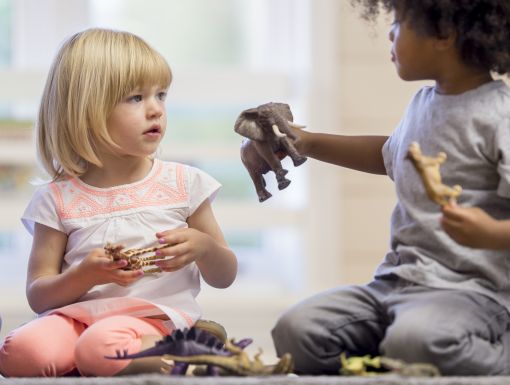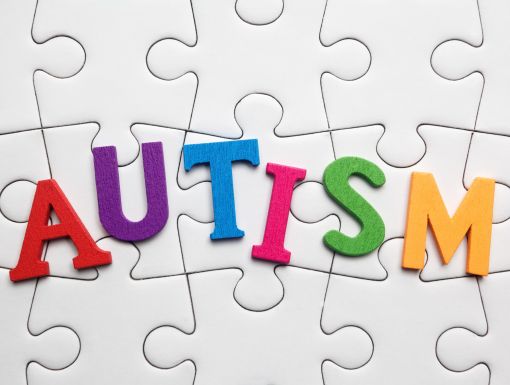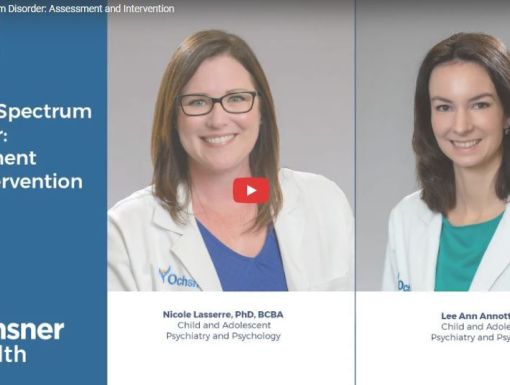
Signs of Autism in Adults
Note on terminology: This article includes terminology related to autism spectrum disorder and other neurodivergent presentations. Person-first language (such as “person with autism”) is used at times in this writing, but it should be noted that many people prefer identify-first language such as “autistic person.” In general, it is important to use the terminology that is preferred by each individual person.
Autism diagnosis in adults can bring people a sense of relief in better understanding their neurodiversity, which is defined as the range of differences in a person’s individual brain functions and behaviors. If you or someone you know suspects they might have autism, read on for signs of autism in adults, plus how autism is diagnosed in adults.
Signs and symptoms of autism in adults
People diagnosed with autism spectrum disorder show differences that cause difficulties in two areas:
Social communication skills
- Delayed or unusual language features
- Difficulty with conversational skills
- Differences in both facial and verbal expression
- Trouble relating to others
- Differences with understanding and relaying social and emotional cues
- Masking, which is defined as the intentional learning of typical behavioral expressions, such as nodding, smiling or laughing in social situations and mimicking them to fit in
The presence of multiple repetitive patterns of behavior
- Difficulties with transition and change
- Strict adherence to rituals and routines
- Repetitive behaviors or speech
- Intense interest in topics or objects
- Sensory processing differences
These symptoms may look different from one person to the next, as each person is different and their presentation will be, too. If you notice these symptoms within yourself or a loved one, the next step would be to chat with your healthcare provider and receive a referral for autism diagnosis.
Diagnosing autism in adults
Autism diagnosis is behaviorally based, which means that it is diagnosed through getting information about the following:
- Developmental history
- Current symptoms
- Behavioral observations of skills and behavior
- Rating scales and self-descriptions of emotions and thoughts
Autism diagnosis typically includes interviewing and completing activities that include social interaction and communication, as well as interviewing family members or other people who can provide some historical information about the person.
Diagnosis of adults is often initiated by the person themselves, as they may not have been identified in childhood due to changes in diagnostic criteria, increased understanding of autism spectrum disorder in recent years and masking of autistic expressions.
People who do not meet all the criteria for autism may still identify as being neurodivergent and some may exhibit broader autism characteristics, which encompasses people who may have some autistic traits. This is common in relatives of people with autism and may indicate that certain behaviors are genetic and shared within families. These people may still benefit from some support strategies geared toward an autistic learning style.
Gender differences in autism
Rates of autism are significantly higher in men or those assigned male at birth; they are estimated to be four times more likely to receive a diagnosis. However, some of these differences may be related to how autism symptoms may present differently in men and women.
Women with autism may present in the following ways:
- More subtle symptoms of repetitive behaviors
- Higher awareness around what is considered socially appropriate
- Better compensatory social strategies, such as understanding social cues (a smile means friendliness, a nod means you’re listening, eye contact means you’re engaged, etc.)
- More likely to engage in “masking” or using techniques to hide symptoms of autism
What’s wrong with “masking”?
For people with autism, “masking” becomes a large part of their day-to-day lives as they navigate a world that still stigmatizes differences. However, it can be exhausting to feel as though one must effortfully present social behaviors that do not necessarily represent who they are. Masking can result in anxiety, depression, and burnout. Although women tend to engage in higher rates of or more “successful” masking, masking is found in both men and women and nonbinary people with autism. Increasing understanding and acceptance of neurodiversity may help to decrease the burden in autistic adults and allow people with autism to express themselves in public in ways that make them feel safe, supported, and accepted.
Neurodiversity and reducing stigma
Neurodiversity is the concept that neurodevelopmental differences are a normal part of the variation in the population rather than abnormal or deficits that a person’s neurodivergence means they are lacking characteristics that make them human. This can include a variety of neurodivergent presentations, like masking or lack of eye contact, among which those with diagnoses such as autism spectrum disorder, attention-deficit hyperactivity disorder (ADHD) and learning differences. Neurodiverse people may experience additional challenges compared to neurotypical people, but the differences in how they experience or interact with the world also present many strengths. This perspective also suggests that the reason that neurodivergent people have “challenges” or “impairments” is because of barriers inherent in our society and norms, rather than “deficits” on the part of the individual. This places the emphasis on societal change and increasing inclusion rather than on treating or changing the neurodivergent community. It is important to focus on strengths rather than deficits, while also considering the challenges the person may face in different situations. The concept of neurodiversity advocates for acceptance and one of the goals of this movement is to reduce stigma around differences in how people experience and interact with the world. Self-advocacy networks and organizations, such as those included below, can help promote equality and share information about neurodevelopmental differences.
Sharing a diagnosis and how to support autistic adults
Family members, friends and other sources of social support can help to support their autistic loved ones by educating themselves on neurodiverse conditions. Because autism presents differently and is experienced by each person in a unique way, asking the person about their experiences is an important step. Many autistic adults have communicated that it can feel very invalidating when others respond to them sharing their neurodiversity by responding in ways such as, “You don’t seem autistic,” or, “Are you sure that you have autism?” Loved ones are encouraged to try to support the person through trying to better understand that person’s experience and needs. Asking autistic adults what can be most helpful to them in different situations can help to support them and help minimize the amount to which they may feel as though they have to mask their neurodiversity. Each person with autism or other neurodiverse conditions is different, so it is important to acknowledge and attempt to best understand what autism means for each specific person. Sharing an autism diagnosis is a personal decision and how its shared, when and with who is up to that individual.
Resources for adults with autism
The following resource includes tips, strategies and considerations in sharing a diagnosis of autism as an adult: https://adultautismcenter.org/blog/sharing-an-adult-autism-diagnosis-with-family-and-friends/
Ochsner Health
Ochsner Health’s Psychiatry and Behavioral Health Services provides resources for autistic people experiencing emotional problems. Resources include psychiatrists, psychologists, medical providers and social workers.
Local to New Orleans:
Autism Society of Greater New Orleans (ASGNO) virtual groups:
- Adult Social Skills Group
- Autistic Professionals Support Group
#CelebrateDifferences for Autism Acceptance Month
National:
Autistic Self-Advocacy Network (ASAN): https://autisticadvocacy.org/
Spectrum News: https://www.spectrumnews.org/features/deep-dive/costs-camouflaging-autism/



